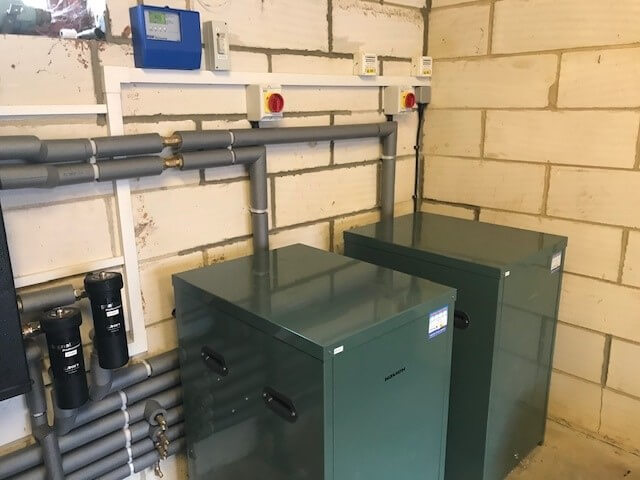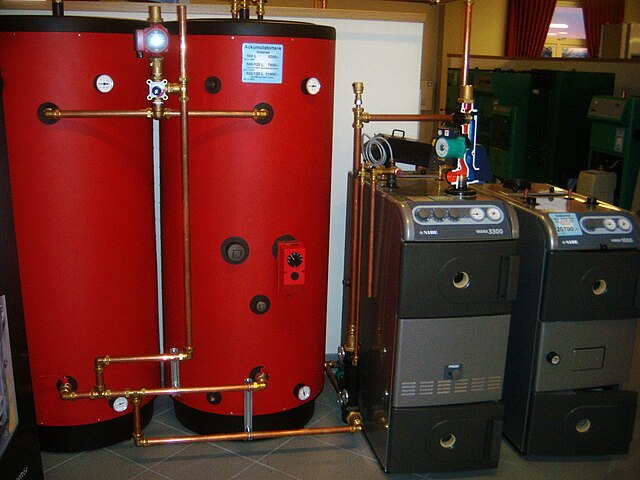When it comes to heating your home during the colder months, one of the most important decisions you’ll make is choosing between heating oil and natural gas. Both options have their advantages and drawbacks, and the best choice for your home depends on a variety of factors, including the availability of resources, energy efficiency, and environmental impact. In this article, we’ll explore the key differences between heating oil and natural gas, and help you determine which is the right option for your home.
Understanding Heating Oil and Natural Gas
Before diving into the pros and cons of each heating method, it’s important to understand what each one involves.
- Heating Oil: Heating oil is a liquid fuel derived from crude oil that is stored in tanks, usually located outside or in the basement of a home. Oil is burned in a furnace to produce heat, and the system relies on an oil delivery service to refill the tank when it runs low.
- Natural Gas: Natural gas is a fossil fuel primarily composed of methane. It is delivered directly to your home through pipelines and burned in a furnace or boiler to generate heat. Natural gas is commonly used in homes for both heating and cooking.
Cost Comparison
Cost is often the first factor homeowners consider when choosing a heating method. Here’s a breakdown of how heating oil and natural gas compare in terms of cost:
- Heating Oil: The cost of heating oil can fluctuate significantly based on global oil prices. In regions where heating oil is used extensively, the price is often higher in the winter due to increased demand. Additionally, the cost of heating oil includes delivery fees, which can add to the overall expense. On average, heating oil tends to be more expensive than natural gas on a per-unit basis.
- Natural Gas: Natural gas prices are generally more stable and often lower than the cost of heating oil. Since natural gas is delivered via pipelines, homeowners don’t have to worry about the delivery fees associated with oil. However, in areas where natural gas infrastructure is not as developed, the costs may be higher due to the need for installation of gas lines.
While the price per unit is a crucial factor, it’s important to also consider the efficiency of the heating system. Natural gas furnaces tend to be more energy-efficient than oil furnaces, meaning you may need less fuel to heat your home, leading to potential savings over time.
Energy Efficiency
Energy efficiency refers to how effectively a heating system converts energy into heat. A more efficient system will provide the same level of comfort while consuming less fuel, leading to lower overall costs.
- Heating Oil: Modern oil heating systems are relatively efficient, with high-efficiency oil furnaces reaching efficiency ratings of around 85% to 95%. However, oil is still a less efficient fuel compared to natural gas, meaning you’ll burn more fuel to achieve the same level of heating.
- Natural Gas: Natural gas heating systems tend to be more efficient, with many new furnaces achieving efficiency ratings of 90% or higher. In fact, some of the most advanced gas furnaces can reach near-perfect efficiency, which means you get more heat for your money.
In terms of energy efficiency, natural gas has the edge. This makes it a particularly appealing choice for homeowners looking to reduce energy consumption and lower their heating bills.
Environmental Impact
As climate change becomes an increasingly important concern, many homeowners are prioritizing environmentally friendly heating options. Let’s take a look at how heating oil and natural gas stack up in terms of environmental impact:
- Heating Oil: Heating oil is a fossil fuel, and burning it releases carbon dioxide (CO2), sulfur dioxide, and other pollutants into the atmosphere. This contributes to global warming, air pollution, and health problems. While advances in technology have made oil heating systems more efficient, it remains one of the least environmentally friendly heating options available.
- Natural Gas: While natural gas is also a fossil fuel, it is considered cleaner than heating oil in terms of emissions. Natural gas produces fewer greenhouse gases and air pollutants than oil when burned. However, it’s still a nonrenewable resource, and the extraction and transportation of natural gas can have negative environmental consequences, such as methane leaks.
If reducing your home’s carbon footprint is important to you, natural gas is a more environmentally friendly option compared to heating oil, although there are still concerns related to the extraction process and the long-term sustainability of natural gas. For more information on this topic, see their article in this link.

Availability
The availability of heating oil and natural gas varies depending on your location. In some regions, one fuel type may be more accessible or cost-effective than the other.
- Heating Oil: Heating oil is common in rural areas and places where natural gas infrastructure is lacking. If you live in a region with a lot of rural homes or a community that relies on oil heating, it’s likely that heating oil will be your primary option.
- Natural Gas: Natural gas is typically more available in urban and suburban areas, where pipelines are already in place. If you live in a city or town with an established gas grid, natural gas will likely be the more convenient and affordable option.
If you’re considering switching from heating oil to natural gas, the cost and feasibility of installing a natural gas connection should be factored into your decision. In some cases, the cost of installation may outweigh the benefits, especially if natural gas is not readily available in your area.
Maintenance and Longevity
Both heating oil and natural gas systems require regular maintenance to ensure efficiency and longevity, but there are differences in how these systems operate.
- Heating Oil: Oil furnaces require periodic cleaning and maintenance to keep them running efficiently. The oil tank also needs to be monitored and refilled regularly, which means you’ll need to arrange for deliveries. In addition, oil systems tend to have a shorter lifespan than natural gas systems, typically lasting around 15 to 20 years.
- Natural Gas: Natural gas systems generally require less maintenance than oil systems. Gas furnaces have fewer moving parts and tend to last longer, often reaching 20 to 25 years with proper maintenance. However, you will still need to have the system inspected and cleaned regularly to maintain efficiency and safety.
In terms of maintenance and longevity, natural gas systems tend to be more hassle-free and last longer than oil systems.
Which Is Right for Your Home?
Choosing between heating oil and natural gas depends on a variety of factors, including cost, efficiency, availability, environmental impact, and maintenance.
- Go with heating oil if: You live in a rural area where natural gas infrastructure is not available, or if you already have an existing oil heating system that you are comfortable with. Heating oil may also be the best option if you prefer a more independent heating source and are willing to manage deliveries and tank refills.
- Go with natural gas if: You live in an area with access to natural gas lines and are looking for a more energy-efficient, environmentally friendly, and cost-effective heating solution. Natural gas tends to be more efficient and has a lower environmental impact than heating oil.
Ultimately, the best choice for your home will depend on your unique circumstances, so it’s important to weigh all the factors before making a decision. Consulting with a heating professional can help you assess your options and find the most suitable heating system for your needs.













